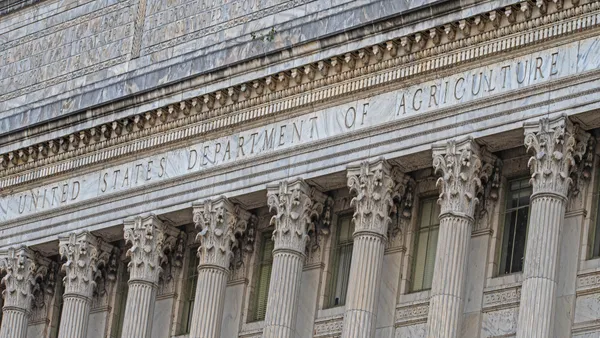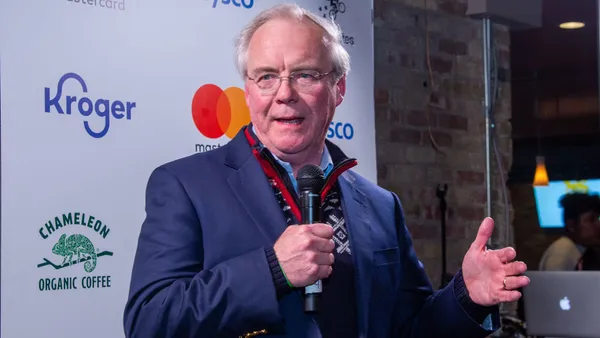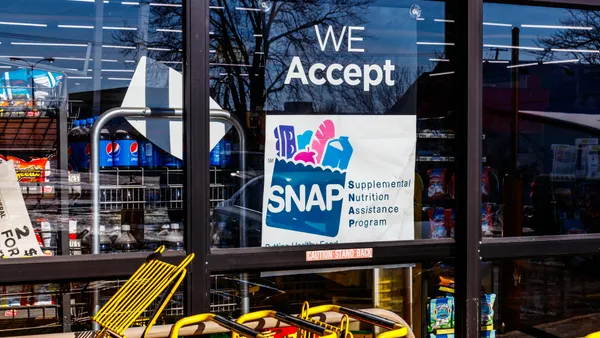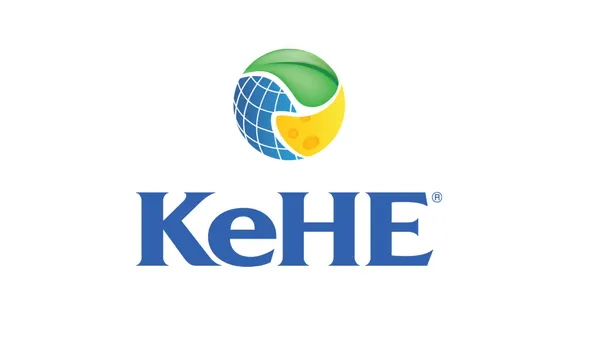Dive Brief:
- The U.S. Supreme Court has ruled in favor of The Food Marketing Institute (FMI) to keep store-level Supplemental Nutrition Assistance Program (SNAP) sales data confidential, according to a press release from FMI. The case overturned a ruling from the U.S. Court of Appeals for the 8th Circuit made last year.
- The Argus Leader, a South Dakota newspaper, filed a lawsuit in 2011 when the USDA denied its Freedom of Information Act (FOIA) request for store-level SNAP data. A series of appeals followed to determine whether the data is considered confidential under a precedent known as Exemption 4.
- According to yesterday's Supreme Court decision, SNAP sales data falls under "confidential" because the information is treated as private and "provided to the government under an assurance of privacy."
Dive Insight:
According to Politico, the Supreme Court’s decision to protect store-level data under Exemption 4 effectively reverses a 45-year-old precedent set in the D.C. Circuit court that said private information from businesses wouldn’t be confidential under FOIA unless disclosing it would cause competitive harm or impact the government's ability to gather information in the future.
During the court case, FMI argued that businesses should determine what falls under the guidelines of Exemption 4, but Argus Media argued that it sought taxpayer data, not confidential business records.
"FMI appreciates that the Supreme Court confirmed Exemption 4’s plain statutory text, rejecting an interpretation that subjected confidential commercial and financial information to improper disclosure," the trade organization said in a release. "FMI believes that the new standard will protect private financial information today and in the future."
Leslie Sarasin, president and CEO of FMI, also noted that grocery stores have long kept sales data private whether payment is made with cash, credit, debit or the SNAP program. Requiring them to release that information publicly would create an unfair advantage for competitors, particularly during this challenging time in the grocery industry.
Competition for SNAP customers has increased in recent years as the USDA has expanded the number and type of food retailers that can accept SNAP benefits. In addition to traditional supermarkets, supercenters, farmers markets, convenience stores and dollar stores across the U.S. accept SNAP benefits from shoppers. Even Amazon will start serving SNAP customers as part of the USDA's new online pilot program for benefit recipients.
The National Grocers Association (NGA) participated in the court case, with president and CEO Peter Larkin testifying as an expert witness in an earlier district court case in May 2016. The NGA released a statement saying it supports the Supreme Court’s decision and reiterated that releasing the store data would harm the industry.
"Knowing that their confidential business information will remain protected by the government, independent supermarkets will continue to be strong partners in the SNAP food delivery system, serving the millions of American families who rely on domestic food assistance," Larkin said in a statement.
Justice Neil Gorsuch led the decision for the six-judge majority that sided with FMI. In a dissenting opinion, Justice Stephen Breyer noted that "the whole point of FOIA is to give the public access to information it cannot otherwise obtain."
Breyer, along with Justice Ginsburg and Justice Sotamayor, argued that the ruling will make it easier for companies to hide information that the public deserves to know and that businesses should be required to show how they would be harmed from releasing data to the public.
Expectedly, the Argus Leader was disappointed with the results of the court case. "This is a massive blow to the public’s right to know how its tax dollars are being spent, and who is benefiting," wrote news director Cory Myers. The newspaper said that its original request for store-level SNAP data was made to support ongoing projects and investigation into food access and fraud within food stamps.
Correction: In a previous version of this article, the case where NGA president and CEO Peter Larkin's testified was misidentified. He was an expert witness at an earlier district court trial in May 2016.











